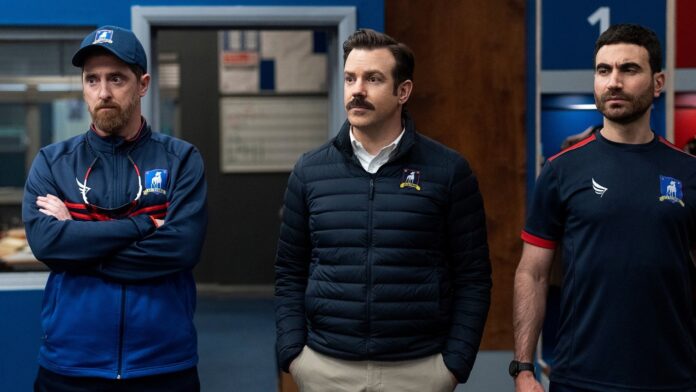Ted Lasso, the hit show on Apple TV, an American comedy that masterfully weaves in biting British humour, imparts much-needed lessons about modern leadership and people-centric management.
A small-time Kansan American Football coach Ted is recruited by a struggling British football club despite having zero experience in the game. What ensues is an exciting plot — and a story that we can take some great leadership lessons from. No wonder the show also racked up 20 Emmy nominations, including four in the Best Supporting Actor category.
But now let’s jump to the three lessons Lasso and his cohorts gave us as a cheat sheet for being a good leader:
1. Bench the troublemakers
Leaders need to hold each team member accountable to a standard. In Ted Lasso, we see Jamie Tartt, the young, highly arrogant star of AFC Richmond who became their top scorer, show his immaturity through egotism and selfishness. Tartt can be seen being a ball-hog on the field, impairing others from having control even when they have a better shot. Off the field, he is a relentless narcissist and a bully.
But when Lasso witnesses his continued bad behaviour sapping the team’s morale, guess what does he do? He decides to bench his star player during an important game, risking a loss but allowing others to play as a unified team and ultimately pull out a win after the coach’s encouragement.
So when you have employees in your company that are self-centered, over aggressive and a detriment to potential success, you may want to give them a reality check. Of course, this doesn’t mean you bench them permanently, but it’s suggested to make an investment in management or executive coaching on behalf of that person. Give them the feedback that they need to do better. Offer a development program that focuses on teamwork, collaboration, and self-awareness.
While Tartt is later called back to play for his original team, the team learns another lesson: everyone is replaceable.
“You may be one in a million, but you are also one in eleven.”
2. Great Ideas Can Come from Anywhere
Ted Lasso knew that he didn’t have all the answers, so he always invited those around him to share their ideas and empower them to act on them. Perhaps the best example of this would be Nate Shelley, the shy former kit man turned assistant coach, who had a horrible confidence problem.
Of all his new employees, Lasso decides to not only befriend him but also encourages him to share his insights and ideas. Nate is astonished to learn that someone in Ted’s position would even consider talking to him, let alone solicit their views and opinion about tactics. But like a true leader, for Ted, everyone has value.
As a sports coach, Ted realises that when it comes to ideas, it’s dumb to put meaningless fences in people’s way. The value of leveling the playing field (both metaphorically and literally) by never disregarding the potential value of a person’s contribution is a important lesson we all can learn from Ted Lasso.
“I want you to know I value each of your opinions, even when you’re wrong.”
3. Set the Bar High
Ted Lasso leads with optimism and camaraderie even when not everybody is unsure about how to take his unbridled enthusiasm and positivity. His can-do attitude creates a ripple effect, naturally pushing others to develop a soft spot for him and believe in a positive outcome.
His expectations for his team drive them to never stop improving, never setting a bar so low that “fine” is a win.
So gather your team, put your heads together and set your goals higher than fine because if you put your heart and soul in the game, you can win the whole damn thing.
“Don’t you dare settle for fine.”
Learn how you can take your leadership teams through a growth model which will help them mature on personal and professional levels. Raise your leadership game with our 360 Feedback Solution.
Paul Keijzer is the CEO and Founder of Engage Consulting and the co-Founder of The Talent Games, which aims to transform HR by digitising talent processes and creating more engaging and productive workplaces through gamification and mobile technology. As a global HR and Leadership Management expert, Paul knows how to combine business insights with people insights to transform organisations and put them on the path to growth.



